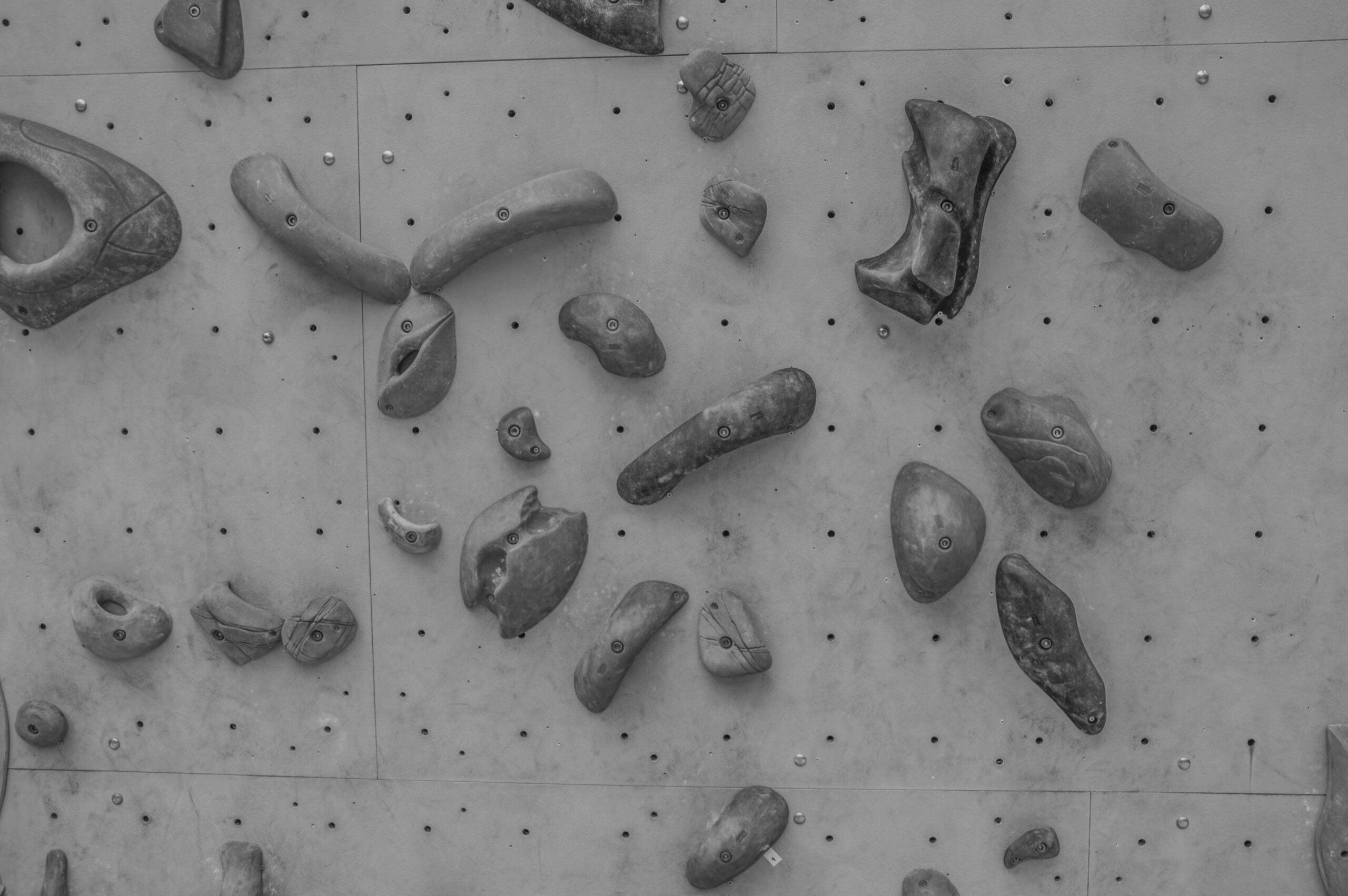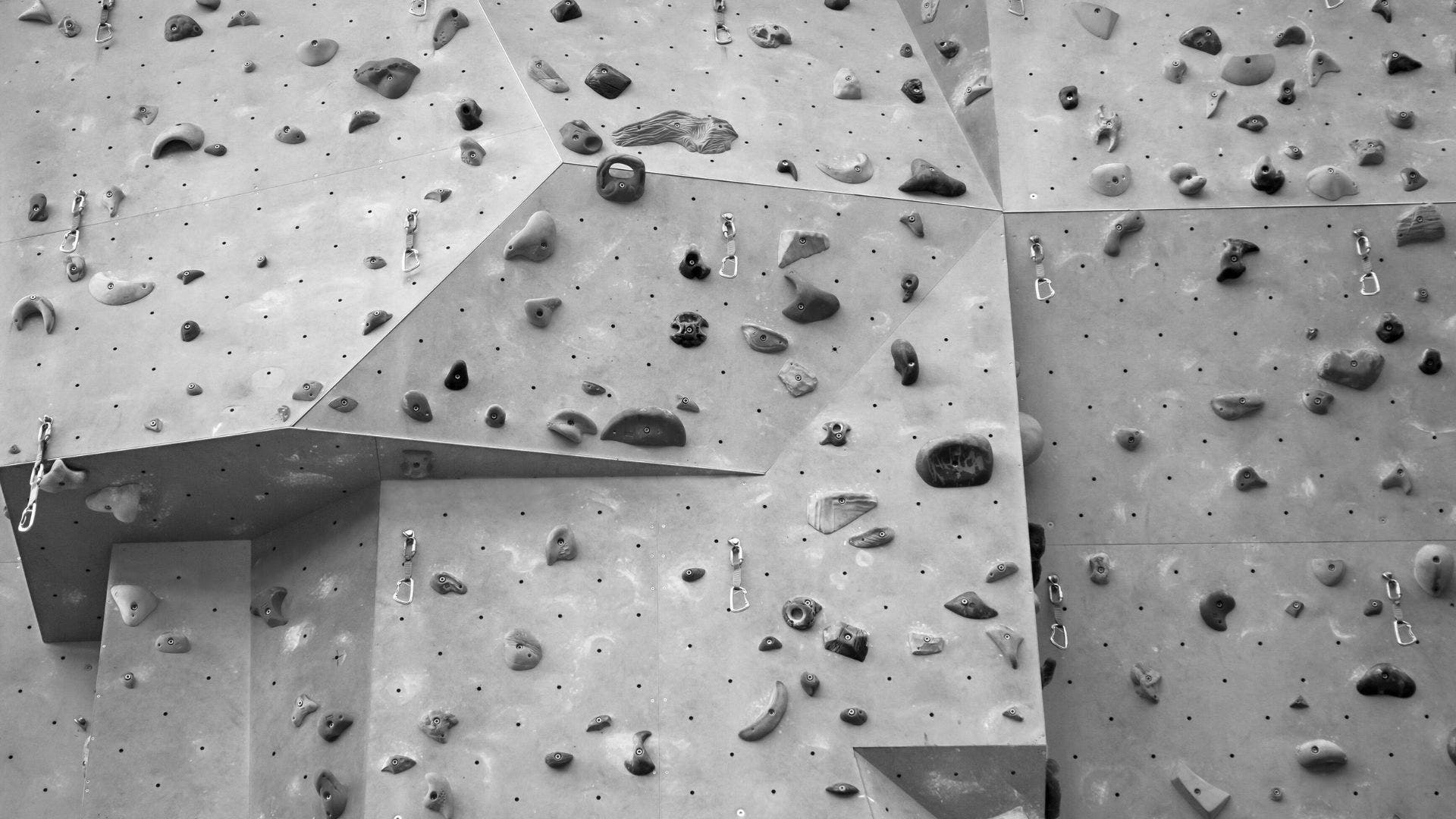How Climbing’s Culture of Blind Trust Led to Sexual Abuse

While many climbers may feel far removed from the professional and competitive side of climbing, most would-be victims of abuse are being groomed during practice and the gym’s busiest hours. (Photo: Getty)
One of the defining elements of climbing culture is the immediate bond of trust that climbers afford one another upon meeting. Innate trust and everything that comes with it—camaraderie, kindness, and respect—is what sets climbing apart from other sports and creates the climbing community we so love.
However, the downside to this blind trust is the potential for sexual abuse and violence to thrive. If we turn a blind eye to this increasingly prevalent issue in our rapidly growing sport, we risk losing all the unique parts that make our community, culture, and sport great.
Had proper boundaries, reporting, and education been standard and habitual when I was a child, former USA youth climbing team coach Alexander Fritz wouldn’t have had the opportunity to abuse me. His grooming process would have been ineffective, and the continuation of his abuse against other victims would have been nearly impossible. Instead, over six years, he subjected three victims to emotional and physical abuse that reached across various state lines and international borders. Had it not been for his arrest and incarceration, he would still be abusing young climbers today.
Fritz was sentenced to five years in state prison on October 6, 2022, after pleading guilty to four counts of the rape of a child. In no way do the four crimes he was charged with fully reflect the true extent and depth of his abuse.
Accounting for time served before sentencing and “good behavior,” Fritz could be released as early as 2025.
Separate from the criminal charges, Fritz has been added to SafeSport’s disciplinary database, where he is listed as one of the six USA Climbing members who have been sanctioned for unconscionable transgressions against SafeSports policies. Those six climbers represent countless acts of emotional and physical abuse—childhoods ruined, families forever changed—all perpetuated against climbers, by climbers, through climbing.
Due to the conditions of Fritz’s community custody (formerly known as parole), upon his release, he will face restrictions from coaching, mentoring, or working in settings that involve regular contact with minors. Additionally, he will be barred from areas where children’s activities are prevalent, effectively limiting his access to climbing gyms. However, once his five years of community custody are complete, there may be no legal impediment to him returning to climbing gyms. While SafeSport has declared Fritz ineligible to participate in any aspect of sports under the jurisdiction of the US Olympic and Paralympic Committee, this prohibition only extends to USA Climbing-sanctioned events (programs, practices, competitions, etc.). Climbing gyms, as separate entities, fall outside this jurisdiction. Although he won’t be allowed to coach a team, neither SafeSport nor law enforcement can prevent him from climbing alongside children during practice or offering private lessons. Furthermore, his community custody and SafeSport sanctions do not restrict his ability to climb outdoors.
While six listed abusers may appear minuscule compared to mainstream sports (such as the 284 listed for USA Gymnastics or the 374 listed for USA Soccer), climbing is still a relatively small sport. With the introduction of climbing to the Olympics, the sport will only continue gaining popularity, bringing on more gyms, coaches, and teams across the US. Many mainstream sports have had landmark cases of pedophilia and sexual assault, which significantly increased awareness and preventative efforts in the aftermath—the most well-known being gymnastics coach Larry Nassar’s case, which was an impetus for the creation of SafeSport. Although Fritz’s actions are thankfully not as far-reaching as that case, I believe this needs to be the turning point of climbing.

Sexual violence in climbing not only affects children in competitive climbing—it can affect all climbers. A survey by SafeOutside of over 5,000 climbers in 2018 found that 47 percent of female climbers had experienced some form of sexual harassment or assault while climbing, both inside gyms and outdoors.
Climbing is not always a respite from real-world issues as many would like to believe—it is simply a continuation of it. When we as a community begin acknowledging the conflicting relationship between sexual violence and the trust that is so essential to climbing culture, we can better correct the parts of our community that allow the violence to occur and end the actions that perpetuate it.
Although individuals and our communities should drive accountability and education regarding sexual violence, it’s crucial to acknowledge the already existing system for preventing and reporting abuse in youth competitive climbing.
The US Center for SafeSport was created to protect athletes from emotional, physical, and sexual abuse. SafeSport has made internal adjustments and improvements every year to live up to its mission of fostering respect and ending abuse in sports. In the organization’s seven-year history, they have significantly streamlined and enhanced their system to make processes more objective, efficient, and effective.
However, SafeSport has historically fallen short of its goals when addressing real cases. The unfortunate combination of limited funding, resources, and personnel coupled with an overwhelming number of cases has resulted in a frustratingly slow process and, more importantly, a loss of respect in the communities it is supposed to protect. Consequently, rather than utilizing SafeSport to better the community, many people see it as a way to get a few easy laughs. While it’s easy to make jokes or poke fun at SafeSort and its policies, doing so ultimately dismisses the trauma of every person or child who has ever been harassed or assaulted. Regardless of the intent, making light of such a dark subject undermines SafeSport’s purpose and those who need it most.
What further complicates this problem within climbing is how loosely SafeSport’s rules and policies are interpreted and followed. SafeSport’s policies should not be up for interpretation by any coach, parent, athlete, or team: They are absolute and non-negotiable. If all climbing teams were in complete compliance with all of SafeSport’s preventative policies, there would be virtually no avenues for predatory adults to pursue minor athletes. Some of the most straightforward preventative policies include prohibiting one-on-one electronic communication between athletes and coaches and one-on-one interactions between coaches and athletes outside the gym. All coaches, parents, and athletes must be fully aware and in compliance with these rules and consistently report even the most minor transgressions to distinguish the merely uninformed from those with malicious intent. Disregarding SafeSport is disregarding the next generation of climbers, and respecting it is acknowledging the real trauma and anguish that necessitated SafeSport in the first place.
When it comes to keeping sexual violence out of climbing, we all can be part of a better future for our sport. While many climbers may feel far removed from the professional and competitive side of climbing, most would-be victims of abuse are being groomed during practice and the gym’s busiest hours. In situations where parents or coaches might not be present to observe occasional inappropriate comments or gestures, crowded gyms offer opportunities for someone, somewhere, to make a difference by reporting any prohibited behavior. An outside perspective can also better recognize this behavior without the context other coaches, parents, or athletes might use to justify violating SafeSport’s rules. Moreover, if gyms start adopting SafeSport’s policies and training for their employees, there will be much less room for uncertainty regarding grounds for reporting and the reporting process.
By normalizing reporting prohibited behaviors throughout the climbing community, we set ourselves up for a cultural shift towards a safer and more accountable culture. Problems that are easy to ignore are almost as easy to acknowledge—it just takes a little effort from us all.
Ultimately, it is not my responsibility to prove this is a climbing problem or persuade you to think you could help. It is your responsibility as a member of this supportive, trusting, and kind community to learn from my story so we may put an end to sexual abuse and assault in climbing. We can lose our culture by ignoring a prevalent problem, or we can keep our culture by using it to hold people accountable and stand up to the standard we have set for ourselves. Being aware and informed as a community, recognizing the warnings, and reporting the signs is how we protect this generation and generations of climbers to come.
Help make our community safer by learning about SafeSport here.
Thank you to everyone who saw this case through and all of their incredible work, including our lawyer Shelby Smith, victim advocate Nanci Bidondo, detective Marshall Tolbert, lead prosecutor Jarett Goodkin, and Special Assistant US Attorney Laura Harmon. Smith, an attorney with Hagens Berman in Seattle, volunteers her services through the King County Sexual Assault Resource Center (KCSARC). She was a lifeline when we first reported to SafeSport and unsure of our legal rights and responsibilities. She provided support, advice, and guidance throughout the entire process and insisted on doing it all pro bono with the support of her firm despite our attempts to compensate her. If you are a survivor of sexual abuse or assault, RAINN (Rape, Abuse, & Incest National Network) is an excellent resource for finding organizations similar to KCSARC. RAINN has a national phone number—1(800)656-4673—that connects anyone calling with advocates in their area by using the area code in their phone number.